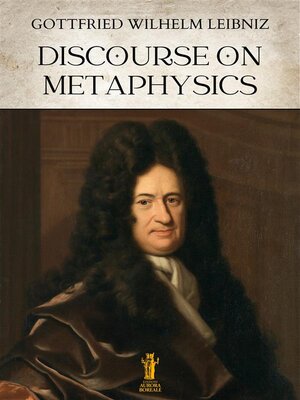
Sign up to save your library
With an OverDrive account, you can save your favorite libraries for at-a-glance information about availability. Find out more about OverDrive accounts.
Find this title in Libby, the library reading app by OverDrive.



Search for a digital library with this title
Title found at these libraries:
| Library Name | Distance |
|---|---|
| Loading... |
Gottfried Wilhelm Leibniz (1646-1716) was a German mathematician, philosopher, scientist and diplomat who invented calculus in addition to many other branches of mathematics and statistics. He has been called the "last universal genius" due to his knowledge and skills in different fields and because such people became less common during the Industrial Revolution and spread of specialized labor after his lifetime.
As a philosopher, Leibniz was a leading representative of 17th-century rationalism and idealism. Leibniz's philosophical thinking appears fragmented because his philosophical writings consist mainly of a multitude of short pieces: journal articles, manuscripts published long after his death, and letters to correspondents.
Leibniz dated his beginning as a philosopher to his Discourse on Metaphysics, which he composed in 1686 as a commentary on a running dispute between Nicolas Malebranche and Antoine Arnauld. We propose it to our readers today in the English translation by George Redington Montgomery (1909).
As a philosopher, Leibniz was a leading representative of 17th-century rationalism and idealism. Leibniz's philosophical thinking appears fragmented because his philosophical writings consist mainly of a multitude of short pieces: journal articles, manuscripts published long after his death, and letters to correspondents.
Leibniz dated his beginning as a philosopher to his Discourse on Metaphysics, which he composed in 1686 as a commentary on a running dispute between Nicolas Malebranche and Antoine Arnauld. We propose it to our readers today in the English translation by George Redington Montgomery (1909).







